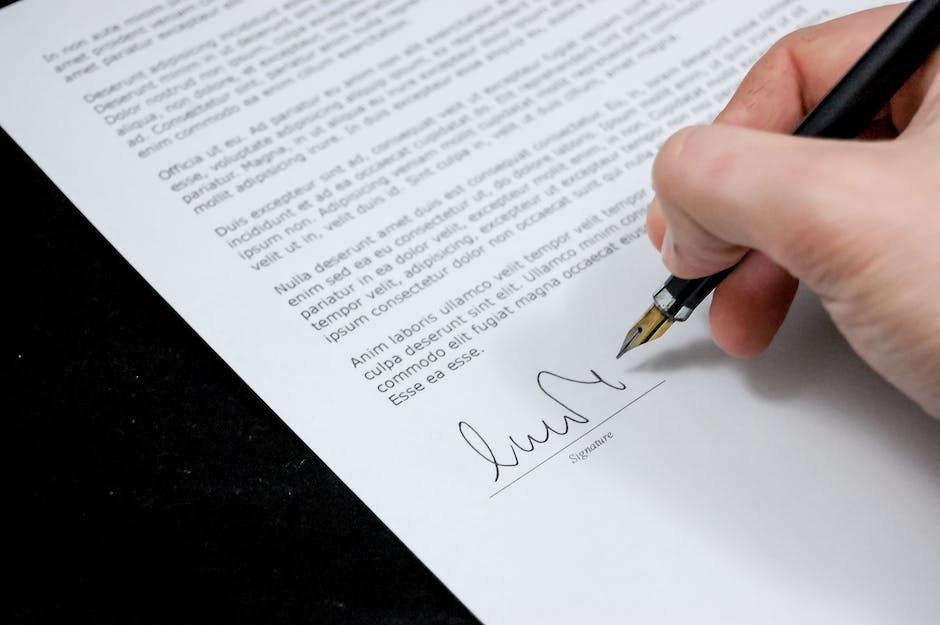Locks are the guardians of our personal sanctuaries, dutifully protecting what we hold dear behind their impenetrable steel barriers. Yet, as humans, governed by our insatiable curiosity and desire for convenience, we have embarked on a relentless quest to overcome these formidable gatekeepers. From ancient artisans to modern-day technologists, lock bypassing has become a mesmerizing dance between cunning ingenuity and ethical responsibility. But as this age-old practice continues to evolve amid our ever-advancing technology, it behooves us to delve into the perplexing depths of this ethical conundrum. For in this realm of skills once intended for honorable purposes, whispering silent debates about the shaky boundaries between necessity and trespass, we find ourselves at a crossroads where knowledge and moral judgment intertwine. Therefore, without further ado, let us embark upon a journey through the intricate web weaved by the ethics of lock bypassing, and unravel the tightly bound secrets that lie within.
Table of Contents
- Understanding Lock Bypassing: An Overview of the Practice
- The Ethical Perspective: Examining the Moral Implications
- Navigating Legal Boundaries: Regulations and Consequences
- Practical Tips for Responsible Lock Bypassing
- Promoting Responsible Use: Ethical Guidelines for Locksmiths
- Q&A
- Final Thoughts

Understanding Lock Bypassing: An Overview of the Practice
Lock bypassing is an intricate practice that allows individuals to gain access to locked spaces without the use of a key. It involves using various techniques and tools to manipulate or override the lock mechanism, granting entry to the user. Understanding the art of lock bypassing requires a deep knowledge of lock systems and their vulnerabilities.
There are several methods utilized in lock bypassing, each with its own unique approach. One commonly used technique is lock picking, where specially designed tools are used to manipulate the lock pins and align them correctly, allowing the lock to be turned and opened. Another approach is bumping, where a specially crafted key is inserted into the lock and then struck with a hammer or similar object, causing the pins to momentarily jump and allowing the lock to be turned.
In addition to traditional lock bypassing methods, advancements in technology have given rise to electronic lock bypassing techniques. These methods involve exploiting vulnerabilities in electronic lock systems or using specialized devices to mimic or override the signals sent between the lock and its control mechanism.
It is important to note that lock bypassing should only be used ethically and legally, such as by locksmiths or security professionals. The knowledge and skills required for lock bypassing can contribute to enhancing security measures and exposing potential vulnerabilities that need to be addressed.
The Ethical Perspective: Examining the Moral Implications
Examining the Moral Implications
In today’s complex world, it is crucial to consider the ethical perspective when making decisions that impact society and individuals. By analyzing the moral implications of our actions, we can ensure that we uphold values such as fairness, justice, and compassion. The ethical lens through which we view our choices helps to guide us towards a more ethical and responsible path.
When examining the moral implications, it is essential to ask ourselves difficult questions. What are the potential consequences of our actions? Are they aligned with our personal beliefs and values? Are we considering the well-being of all stakeholders involved? By pondering these questions, we can start to unravel the layers of ethical complexity and gain a deeper understanding of the impact our decisions can have on others.
- Explore different perspectives: By considering various ethical perspectives, we can gain insights into alternative viewpoints and challenge our own biases. This open-mindedness allows us to make more informed and ethical choices.
- Weigh the benefits and harms: Understanding the potential benefits and harms our decisions may cause is crucial. By evaluating the potential outcomes, we can navigate towards a solution that maximizes benefits and minimizes harm.
- Consider long-term consequences: Short-term gains may blind us to the long-term effects of our actions. It is imperative to analyze the long-term moral implications to ensure that our choices align with our goals and promote the well-being of future generations.
By actively examining the moral implications of our decisions, we become agents of positive change. Incorporating ethical considerations in our choices not only benefits individuals and society but also reflects our commitment to a responsible and compassionate world.

Navigating Legal Boundaries: Regulations and Consequences
When it comes to navigating the legal boundaries, understanding the regulations and consequences is paramount. Ignorance of the law is no excuse, and businesses and individuals alike must ensure they comply with the standards set forth by governing bodies. Failure to do so can result in severe repercussions and potential legal action.
Regulations play a crucial role in maintaining a fair and just society, governing everything from economic practices to environmental protection. Staying abreast of these regulations is imperative to avoid penalties, fines, or even the suspension of business operations.
To effectively navigate legal boundaries, consider the following:
- Research and Familiarize: Stay updated with the latest laws and regulations applicable to your industry. Consult legal experts or regulatory bodies to ensure compliance.
- Ethical Practices: Remember that legal boundaries are not the only considerations. Upholding ethical standards within your business is equally important in building trust and credibility.
- Proactive Measures: Regularly review your company policies and procedures to confirm they align with current regulations. Establish internal checks and balances to avoid inadvertent non-compliance.
In conclusion, understanding and respecting legal boundaries is vital for the well-being of any individual or enterprise. Regulations and consequences serve as a guide to safeguard society and promote fairness. By staying informed and implementing proactive measures, we can all navigate these boundaries responsibly and minimize the risk of facing legal repercussions.

Practical Tips for Responsible Lock Bypassing
When it comes to lock bypassing, it is crucial to approach the task responsibly and with the right knowledge. Whether you are a locksmith, security professional, or simply someone interested in learning these skills, here are some practical tips to keep in mind:
- Research and training: Before attempting any lock bypassing techniques, invest time in understanding the different types of locks and their vulnerabilities. Stay up to date with the latest methods by attending workshops or pursuing professional training.
- Tools and equipment: Make sure you have a reliable and diverse set of tools specifically designed for lock bypassing. Avoid using improper tools or makeshift alternatives, as these can cause damage to the lock or compromise its security.
- Ethical considerations: Responsible lock bypassing entails respecting the law and the privacy of others. Always obtain proper authorization before attempting to bypass a lock and use your skills only for legitimate purposes.
- Documentation and accountability: Keep detailed records of any bypassing attempts you make, including the reasons behind them, the techniques used, and the outcomes. This documentation will help you analyze and improve your skills while ensuring accountability.
- Continued learning: Lock bypassing is a field that constantly evolves. Stay connected with the locksmithing community, engage in discussions, and share your knowledge. By collaborating and learning from others, you can enhance your expertise in a responsible and ethical manner.
Remember, responsible lock bypassing is about skill, ethics, and maintaining the security of others. So, approach this intriguing craft with caution, respect, and a commitment to always stay informed.
Promoting Responsible Use: Ethical Guidelines for Locksmiths
Locksmiths play a crucial role in maintaining the security of our homes and businesses. With great power comes great responsibility, and it is imperative for locksmiths to promote responsible use of their skills and expertise. In order to ensure ethical practices, here are some guidelines that every locksmith should adhere to:
- Honesty: Locksmiths should always be transparent with their clients, providing accurate quotes and disclosing any limitations or risks associated with their services.
- Professionalism: It is essential for locksmiths to maintain a high level of professionalism in all interactions, treating clients with respect, and delivering services in a timely manner.
- Confidentiality: Locksmiths should respect their clients’ privacy by upholding strict confidentiality standards. This includes safeguarding any sensitive information obtained during the course of their work.
- Continual Learning: Given the dynamic nature of security technologies, locksmiths should stay updated with the latest advancements in their field. This ensures that they can provide the best possible solutions to their clients.
By following these ethical guidelines, locksmiths can build trust with their clients and contribute to a safer society. It is essential for the locksmithing community to prioritize responsible use and maintain the integrity of the profession.
Q&A
1. Why is lock bypassing considered an ethical issue?
Answer: Lock bypassing raises ethical concerns because it can infringe on the fundamental right to privacy and security. It challenges the ethics of accessing private property without authorization.
2. What are the different methods of lock bypassing?
Answer: Lock bypassing techniques include picking locks, using lock-picking tools, lock snapping, key bumping, and impressioning. These methods aim to gain unauthorized entry and are a cause for ethical debate.
3. Is lock bypassing always illegal?
Answer: The legality of lock bypassing varies depending on the circumstances and jurisdiction. It may be permissible in emergency situations like rescuing someone from danger, but generally, it is regarded as an illegal act without proper authorization.
4. Can lock bypassing be justified for ethical reasons?
Answer: Some argue that lock bypassing can be justified for ethical reasons, particularly in cases where it reveals security vulnerabilities that need addressing. However, this view is contentious, and the boundaries of ethical considerations regarding lock bypassing are still debated.
5. How does lock bypassing impact security systems?
Answer: Lock bypassing exposes the weaknesses in security systems, challenging the effectiveness of locks designed to protect property and privacy. This raises concerns about the need for improved security measures and the responsibility of manufacturers to address vulnerabilities.
6. Should lock bypassing be a skill taught or shared?
Answer: The teaching or sharing of lock bypassing skills is a controversial topic. While some argue it can help individuals understand security flaws, others believe it can lead to misuse and criminal activities. The ethical implications of sharing such knowledge are heavily debated.
7. Is it ethical for manufacturers to create lock systems vulnerable to bypassing?
Answer: The ethics behind manufacturers creating lock systems vulnerable to bypassing are questionable. Manufacturers have an ethical responsibility to provide secure products that protect the privacy and safety of individuals. Creating easily bypassable locks could be seen as failing this responsibility.
8. How can individuals protect themselves from lock bypassing?
Answer: Individuals can protect themselves from lock bypassing by investing in high-quality locks, being cautious about who they provide access to their keys, and staying updated on security practices. Regularly evaluating and upgrading security measures can help mitigate the risk.
Final Thoughts
As we come to the end of our journey into the intriguing world of lock bypassing, it is important to reflect on the ethical considerations that arise from such a controversial topic. Throughout this article, we have uncovered the various methods and techniques employed by both locksmiths and those with more mischievous intentions, shedding light on the delicate balance between security and intrusion.
While it is undeniable that lock bypassing plays a vital role in maintaining the functionality of our world, it is crucial to approach this practice with the utmost responsibility and respect for the law. The line between legitimate locksmith work and unlawful activities can often be blurred, leaving many questioning the ethics behind bypassing mechanisms designed to protect our homes, possessions, and privacy.
Ultimately, the intended use behind lock bypassing should never veer into the realm of illegal activities, as tampering with locks without proper authorization can have severe consequences. The importance of obtaining proper certification and licenses for locksmiths cannot be overstated, as it ensures that professionals within the industry adhere to the required ethical standards.
As technology continues to evolve, it is paramount for both locksmiths and individuals to remain vigilant and adapt their skillsets accordingly. Responsible lock bypassing should always prioritize the preservation of security and privacy, rather than becoming a tool for illicit pursuits. By approaching this practice consciously and ethically, we can strike a delicate balance that respects both the necessity for security and the importance of personal freedom.
In conclusion, understanding the ethics surrounding lock bypassing is a crucial aspect of navigating the complex world of locks and security systems. As we ponder the delicate dance between legality and intrusion, it becomes clear that a responsible and ethical approach to lock bypassing is essential for upholding the values of security, privacy, and professionalism within the locksmithing community. Only by treading this path mindfully can we ensure a harmonious coexistence between the art of lock bypassing and the wider society it serves.
As an affiliate, my content may feature links to products I personally use and recommend. By taking action, like subscribing or making a purchase, you’ll be supporting my work and fueling my taco cravings at the same time. Win-win, right?
Want to read more? Check out our Affiliate Disclosure page.